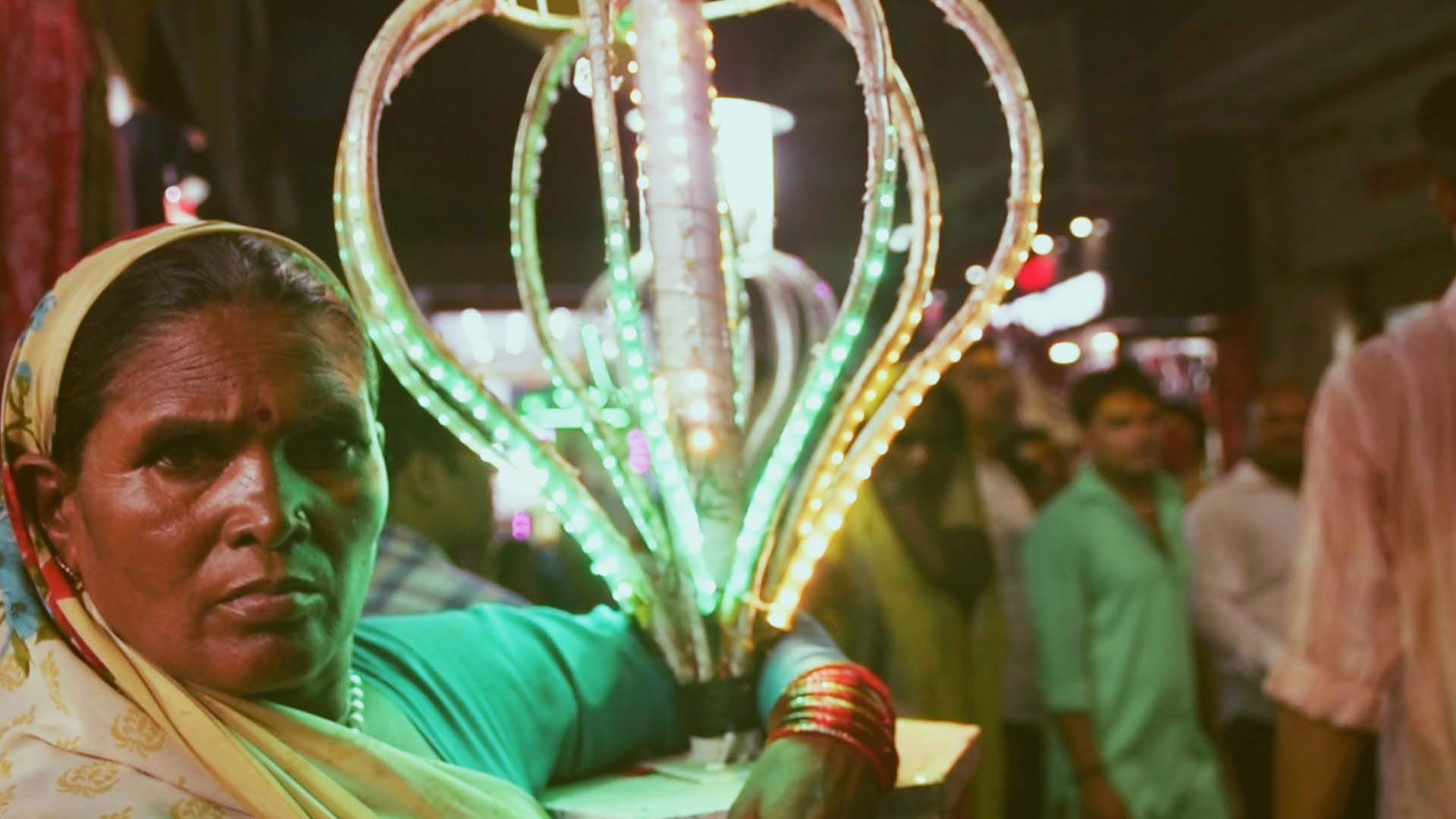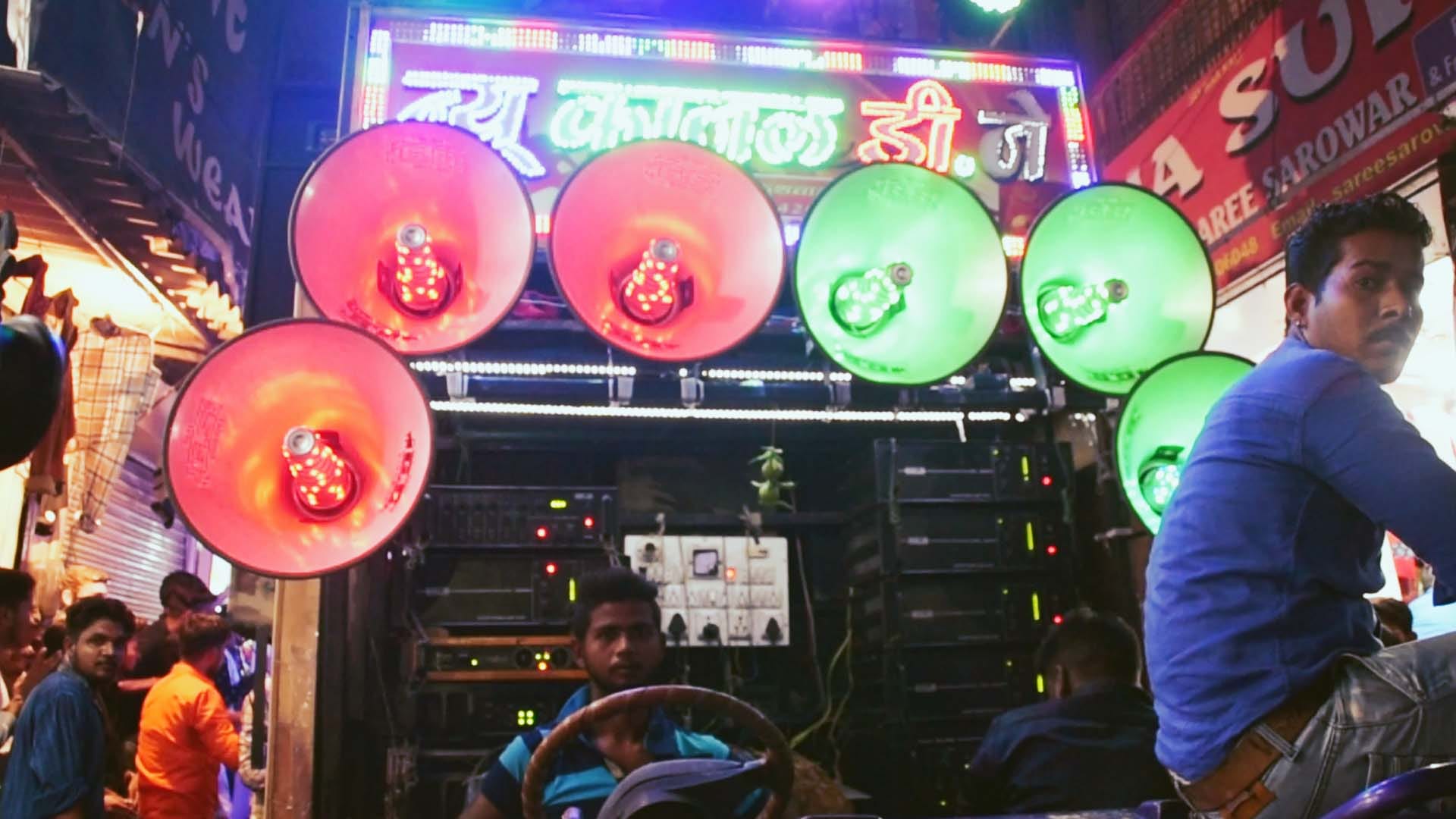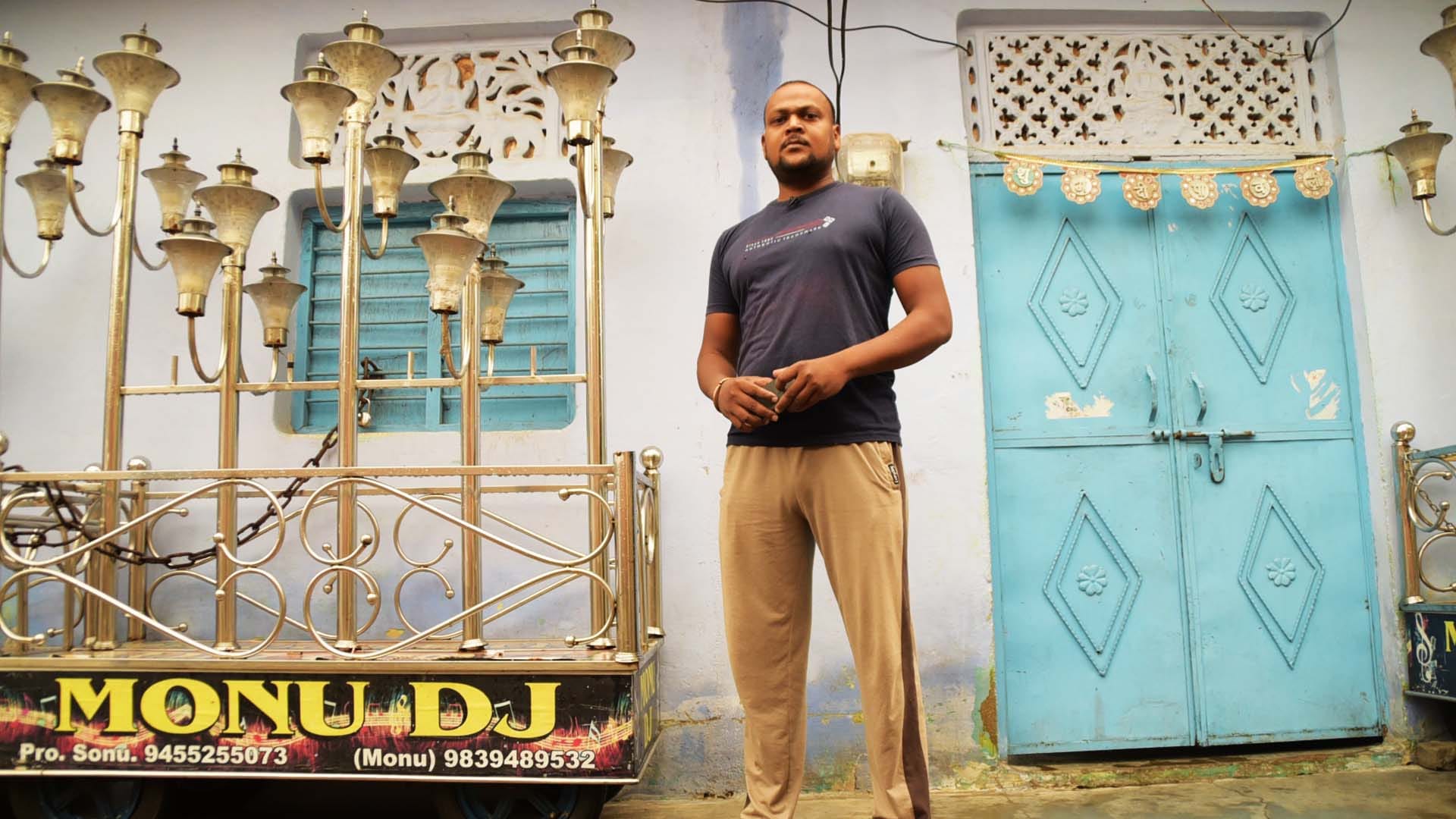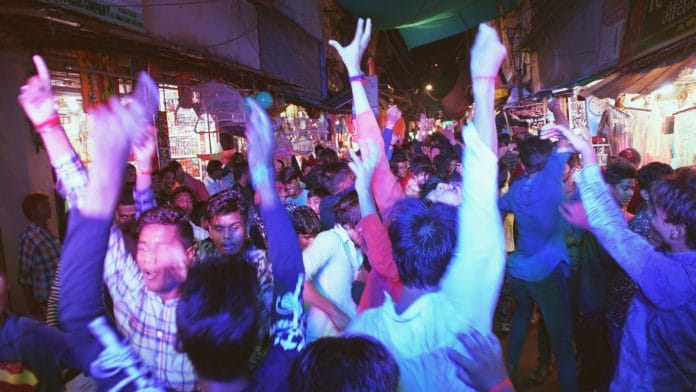For the DJs of Jhansi, religion is irrelevant. Most of them are young boys looking to earn a quick buck and popularity. So, anything goes.
Jhansi: Every Sunday evening, a palki procession arrives in the market area of Manik Chowk, Jhansi, with hundreds of Sai Baba devotees. Every alternate Sunday, catchy remixes played at full blast from multiple loudspeakers usher them in.
The procession is led by a group of men playing the dhol with a passion, and the atmosphere seems charged with devotion. But pay closer attention to the lyrics and you realise they have nothing to do with Sai Baba at all, or even devotion.
What you might hear, instead, is this:
“Kailash pe baithe Shiv ka sandesha aayega, phir Pakistan main bhi bhagwa leheraayega (Shiv will send a message from Kailash, and the saffron flag will fly in Pakistan too).”
Or
“Main Hindu jagaane aaya hu, main Hindu jagakar jaunga. Marte dum tak apne mukh se Jai Shri Ram gaunga. (I have come to awaken the Hindus, will leave after awakening the Hindus. Will sing Jai Shri Ram till my dying breath).”

One of the crowd favourites is a mix based on a firebrand ascetic’s speech — the moment the chorus hits “Kashmir maangoge toh cheer denge (If you ask for Kashmir, we will tear you apart)”, listeners cheer with fervour.
Other tracks go thus: “Hindustan me rahna hoga, Jai Shri Ram bolna padega (If you want to live in India, you will have to chant Jai Shri Ram), “Ram Lalla hum ayenge, mandir wahin banayenge”, a rallying call for those who want a Ram temple where the Babri masjid once stood in Ayodhya.
Songs tinged with provocative “patriotic” and religious messages, mostly proclaiming Hindu superiority, are helping hundreds of budding DJs become local celebrities in Jhansi.
But the politically charged tracks are just a clever business trick for their purveyors, who swear they don’t mean to provoke anyone. Their mantra is simple, they say: Hate sells, bhakti doesn’t.
DJ Siddhart, a 21-year polytechnic student, said he produced music for both Hindus and Muslims, adding that he meant to make money, not serve religion.
“Had I been born in a Muslim family, I would have been a Muslim. So I have nothing against Muslims or any religion,” he said.
Also read: India needs a ‘This is America’
Since each song helps the DJs earn no more than Rs 500-Rs 800, it’s a side job at best. But the popularity is immense: A lot of the mixes are available online for free, and the DJs are often signed up for processions on festivals like Ram Navami and Ganesh Chaturthi.

Despite the nature of the songs, Muslims are tapping in too. DJ Wasim, who has been making pro-Hindtuva songs for four years now, said he knew his music was often played near Muslim localities to hurt members of the community, but added, “I don’t make music for hate.”
“Mein tumhar haqumat ko gira kar apni haqoomat ki bunyaad rakhunga, Jai Shri Ram (I will destroy your rule and establish mine, Jai Shri Ram),” a voice proclaims in one of Wasim’s songs.
Stating that he didn’t have a hand in promoting the hate or potential of violence inherent in his songs, he said, “I make songs for every religion, be it Hindus or Muslims.”
His music, Wasim added, is played not just for Ram Navami and Ganesh Chaturthi processions, but also for Muharram.
DJ Asif from Ranipur said his songs are played as much during Ram Navami as Eid.
The DJs of Jhansi
Jhansi has an estimated 300 DJs, most of whom are young boys who often take crash courses in mixing just before festivals like Ram Navami and Ganesh Chaturthi. Each DJ has about four to five assistant who helps him out with mixing, distributing and, eventually, playing during road shows.
Their tracks are not so much songs as movie dialogues and political speeches set to music. The craze can be traced to Pankaj Kushwah, a final-year BTech student popularly referred to as DJ Lucky, who took the internet by storm with his Modi and Yogi mixes.
One of his songs, called ‘2018 Modi Ji Pakistani Dhamki Dj Dialogues’, features the Prime Minister’s words from his first public address after the September 2016 Uri attack.
“Kya karan hai ki Hindustan software export karta hai aur Pakistan terrorist export karta hai (What is the reason India exports software while Pakistan exports terrorists)?” Chants of Jai Shri Ram intersperse the speech. The video has millions of views on YouTube.
DJ Lucky now has a verified channel on YouTube with more than 600,000 subscribers, and is one of the few among his peers to earn a living from his songs.
Another young DJ, Jainendra Kumar, admitted Kushwah’s influence on youngsters.
“A lot of young boys wanted to make mixes like Lucky. This is when I started holding classes on mixing,” he said.
“The demand for songs consisting of dialogues against Pakistan is extremely high. All we do is find these dialogues from films and speeches online, and mix them together with some beats and release it,” added Kumar, popularly known as DJ JK Jhansi.
Those in the field admit the competition is intense, but insist it’s healthy.
“There is always some competition when it comes to making a better mix. We try and outdo the other, especially with Hindustan and Pakistan mixes,” said DJ Sid.
Attempts to churn out viral content often lead to collaborations, regardless of the DJs’ religion.
Listeners don’t seem to care about the religion of the DJs either: They just gather for the processions where the songs are played and dance into the night.
Also read: The rise of the communal hate soundtrack in India
Some people attribute the popularity of these songs to the fact that they evoked a feeling of “deshbhakti” in listeners.
“Pakistan isn’t a friendly nation, so whenever these songs are played, they only increase the spirit of patriotism in our youth,” said Rohit Gothankar of the BJP Yuva Morcha, “If anyone takes Pakistan’s name, we will not leave them alone.”
Stoking hate
Communal violence during Ram Navami in West Bengal and Bihar earlier this year was attributed by police to sloganeering and the playing of hate tracks near Muslim-dominated areas.
The Jhansi DJs say they mean no harm, but none ThePrint talked to pled ignorance about the use of their songs to create communal tension. They knew the tracks are often played outside Muslim localities and mosques with the express intention to stir up passions.
“They often do this to show them what Hindu power really means. Taking Ram’s name isn’t incorrect but playing these mixes outside mosques could lead to fights,” said DJ Lucky.
Monu DJ, a businessman, said his customers included members of all religions, adding that he would rather not think about the moral implications of his work. “If I start paying attention to the moral aspect of my job, it would stop being a business that very instant,” he added.

DJ Aarif, a 17-year-old school student, said he and his friends produced music to unite people of different religions, but “some miscreants download our songs and manipulate them”.
The prospect of eruptions keeps police on edge and they keep an eye on the processions where these songs are played. At the Manik Chowk procession, two policemen on a motorcycle made occasional appearances. Women, apart from those in the procession, stayed away. The party continued.







The reason why i am no longer reader of THE PRINT, Because Some media including yours, Only raise voice when Hindus are targeted, When talking equality for all religion, NDTV , The wire and some will not raise voice against Muslims when the case about lynching of Sadhus and many more. I am not expert but i can see the hypocrisy. Happy Engineers Day THE PRINT. I had more expectation from the print.
That’s real interesting and troubling at the same time.
Your video mentions that such songs are produced from ‘both’ sides. A few talking heads in the story also mention this, but not a single song features from a Muslim festival in the video. It leaves me wondering about the ‘both bases covered’ (Hindu provocative DJ songs and Muslim provocative DJ songs) claim in the beginning of your video. That could be edited out perhaps, in a new draft.
In any civilized, true democracy, such hate speech is illegal but in India the government seems unwilling and unable to control any sort of crime.